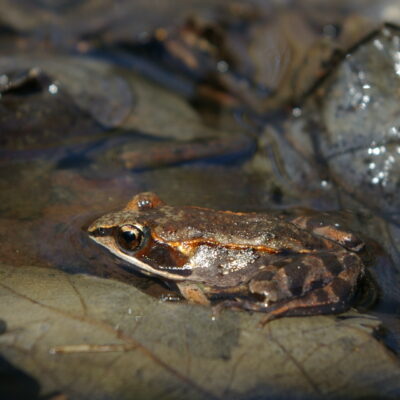by Anthony Siegrist
What does it mean to be a pastor during a biodiversity crisis? When I think about this question, I often think about the career of Holmes Rolston III. In the spring of 1959, a young Rolston began serving as pastor of a congregation in Virginia. He was well-prepared. He had completed a Ph.D. in theology not long before and had deep family connections to the region. However, as his biographer, Christopher Preston, tells the story, the congregation quickly became annoyed with Rolston’s use of scientific language. In addition, Rolston’s exploration of the local countryside had prompted him to worry about the effects of development and some of the newer mechanized farming methods. Apparently, he expressed some of these concerns to congregants who disagreed. Rolston’s pastoral appointment did not last long.
I find the term “biodiversity crisis” to be far too generic. What is happening is that entire species of plants and animals are being eliminated from the face of the earth at an alarming rate. Just a few weeks ago wildlife officials in the US proposed removing 20 species from the endangered species list, not because they have recovered, but because they simply no longer exist. In Canada, a recent report issued by COSEWIC (Committee on the Status of Endangered Wildlife in Canada) pointed out that 15 of the 26 species assessed last May were threatened by climate change. Does this have any bearing on the role of pastors?
Combining pastoral and naturalist vocations
Holmes Rolston was soon hired by a new congregation. His second appointment was more successful than the first. However, by the late 1960’s, Preston tells us that it was clear to Rolston that “a convincing secular argument for the value of nature would make a useful addition to the scriptural one already forming in his mind.”* Rolston left pastoral ministry, reentered academia, and went on to become one of the most influential environmental ethicists of our time. He has developed particularly strong arguments for the value of biodiversity.
I sometimes wonder what would have happened if Rolston had remained a pastor. There have been great pastor-naturalists. The most famous is probably Gilbert White. White was ordained an Anglican priest in 1749, but he is best known for his work as a naturalist. He made astute field observations and wrote a volume of natural history. He influenced the work of Charles Darwin and others, especially in the field of ornithology. But White ministered in a different era, and I doubt a current congregation would have patience with their pastor rambling the hills counting birds. Barring the achievement of some lofty Nadia-Bolz-Weber-like pastoral platform, it’s hard to imagine even Holmes Rolston doing much for endangered species as a member of the clergy.
Pointing to biologists–and remembering the auks
So what does it mean to be a pastor during a biodiversity crisis? Few of us have the sort of discretionary time that eighteenth-century Anglican priests like Gilbert White must have had. For all the odd jobs that pastors can’t avoid, their primary responsibility is surely to nurture the connection between the people in their care and God. Yet we shouldn’t miss the fact that this divine-human relationship comes into being in the context of God’s other-than-human creation. This relationship, so central to pastoral concerns, cannot be separated from other forms of life that fill the world. We see this in the frequency with which Jesus refers to plants and animals. We see this in the way the biblical prophets discern mysterious connections between human decisions and ruptures in the land and its seasons.
Part of the work of a pastor in a biodiversity crisis is simply to point to the biologist and affirm that her message is worth our attention. Part of the pastor’s role is to help us all resist the temptation to obsess about the world of the soul at the expense of the world of the great auk and the ivory-billed woodpecker. This is not impossible. A litany of lament led by the forest church pioneer, Wendy Janzen, still pricks my conscience, even though it has been years since I heard it.
At a recent conference, Doug Kaufman introduced the term “pastoral ecology.” He defines it as “pastoral and congregational ministry that engages the ecosystem to bring about greater health and wellbeing for all human and other-than-human creatures in our neighborhoods.” If someone like Holmes Rolston couldn’t follow Gilbert White down the path of pastor-naturalist, then few of us could hope to do better. But pastoral ecology might be something we can manage to perform, or given our biodiversity crisis, something we surely ought to try. One of the privileges of the pastoral vocation is the call to speak to things that matter. The vanishing of God’s beloved creatures—those other-than-human creatures—is a thing that matters.
Anthony Siegrist is a pastor, theologian and student of sustainability who serves at Ottawa Mennonite Church in Ontario. His column, North of the Border, features voices from Canada. Anthony’s most recent book, Speaking of God: An Essential Guide to Christian Thought, is available from Herald Press.
*For more on the life of Holmes Rolston III, see Christopher Preston’s book, Saving Creation: Nature and Faith in the Life of Holmes Rolston III (Trinity University Press, 2011).
